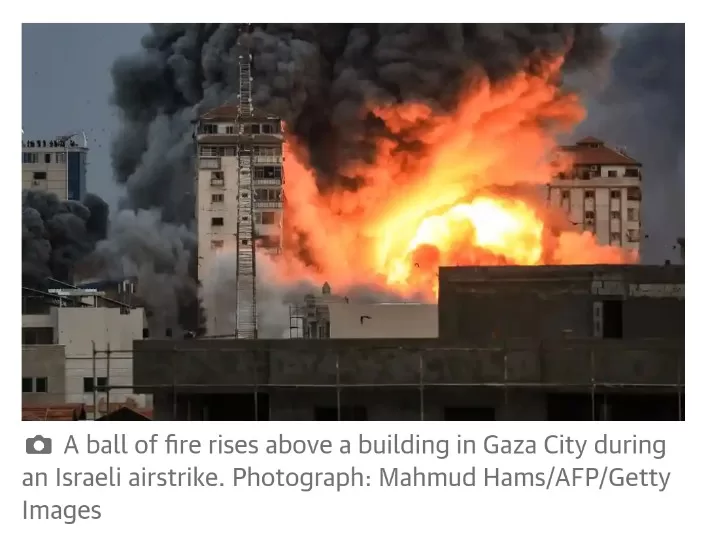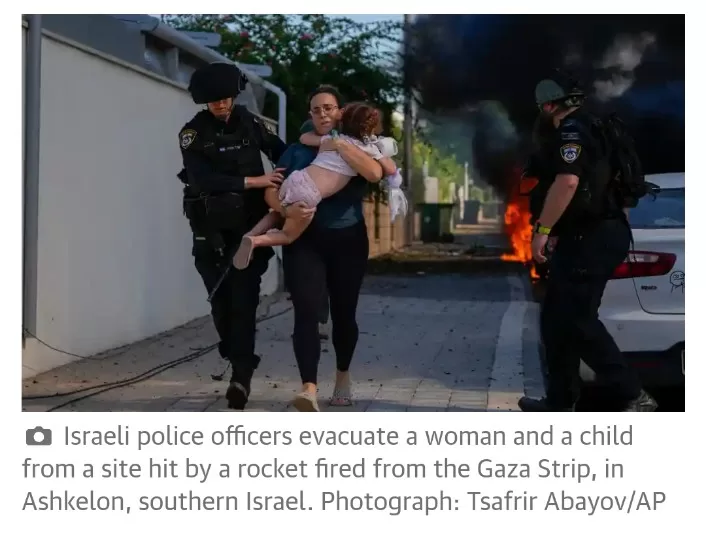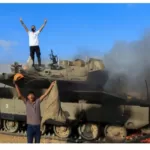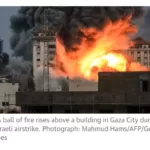In an alarming and unprecedented escalation, Israel and the occupied Palestinian territories are gripped by the most serious confrontation between the Jewish state and Hamas, the Islamist group governing the Gaza Strip. The surprise attack by Palestinians on a Jewish holiday morning has resulted in a staggering death toll, the capture of numerous Israeli hostages, and raised concerns of a broader regional escalation.
Unverified videos released by Hamas, the militant organization that took control of Gaza in 2007, depict young Israelis held captive, covered in blood, with bound hands and eyes filled with terror. Meanwhile, intense battles between Hamas and the Israel Defense Forces (IDF) continue to rage across southern Israel and the Palestinian enclave.
Israeli officials confirm at least 250 casualties within Israel, with over 1,800 injured, and the Red Crescent reports 92 injuries in the West Bank. Heart-wrenching scenes on Israeli television show grieving family members of the deceased and those taken hostage by Hamas, recounting the attacks on their homes and communities while residents slept.
In the Gaza Strip, retaliatory Israeli airstrikes have resulted in at least 232 fatalities and 1,650 injuries, further straining the already fragile medical infrastructure in the region.
The security situation across Gaza, Jerusalem, and the West Bank, already volatile, has steadily deteriorated over the past year and a half. However, the scale and ferocity of what Hamas terms “Operation al-Aqsa Deluge” have taken both sides by surprise. This unprecedented sea, air, and ground offensive by Hamas has ushered in a terrifying new chapter in the longstanding conflict, with potential repercussions akin to the Yom Kippur War of 50 years ago.
Testimonies from civilians in Israel and Gaza echo similar sentiments. Streets remain strewn with bodies and blood, making it perilous to recover the deceased even after nearly 12 hours of ongoing conflict.
In the Israeli village of Nahal Oz on the Gaza border, 68-year-old Daniel Rahamim describes being trapped at home with his family, surrounded by terrorists, and a sense of inadequate military presence. In central Gaza’s Khan Younis, 40-year-old construction worker Abdul Rahman Ab Lihya paints a grim picture of confinement, with residents unable to leave their homes.
Israelis were awakened by missile strikes and air raid sirens on the final day of the Jewish high holidays, as an unknown number of Hamas operatives breached Israel’s hi-tech separation fence on the Gaza border. These militants made their way into Israeli towns and villages, resulting in uncertainty about the extent of Hamas’s territorial gains. As night fell, the IDF estimated that 200-300 militants remained in Israeli territory, with an indeterminate number of civilians barricaded in their homes or held hostage.
Israel declared a state of war, mobilizing reservist forces and launching extensive airstrikes across Gaza. Clashes between Palestinians and IDF troops also erupted in the West Bank and East Jerusalem, resulting in at least one Palestinian fatality.

Hamas’s operation likely involved months or even years of preparation and may have included regional collaboration with Iran, which sponsors both Hamas and Hezbollah. The failure of Israel’s security and intelligence agencies to anticipate this attack has rattled a society that believed increasing surveillance and automation had transformed the 56-year-old occupation of Palestinian territories into a sustainable endeavor.
Today, the conflict enters a new phase, shaking the foundations of the Israeli-Palestinian conflict. The reasons for this sudden escalation remain unclear, but it underscores the catastrophic breakdown of Israeli institutions in the eyes of many. Dahlia Scheindlin, a political strategist and policy fellow at The Century Foundation, describes it as a “game-changer,” leaving the future uncertain and the possibility of regional escalation looming.
Gaza, home to 2.3 million people already battered by four wars since Hamas took control in 2007 and enduring a punishing blockade, is poised to bear the brunt of the consequences. Israel has not faced such a catastrophe in 50 years, raising critical questions for the military and government about how this situation was allowed to unfold.
Prime Minister Benjamin Netanyahu, whose tenure has been marked by domestic upheaval, including judicial reforms and IDF reservist protests, now faces a crisis of historic proportions. Reservists across the country have put aside their differences and rushed to their bases, marking a moment of unity in the face of dire circumstances.







